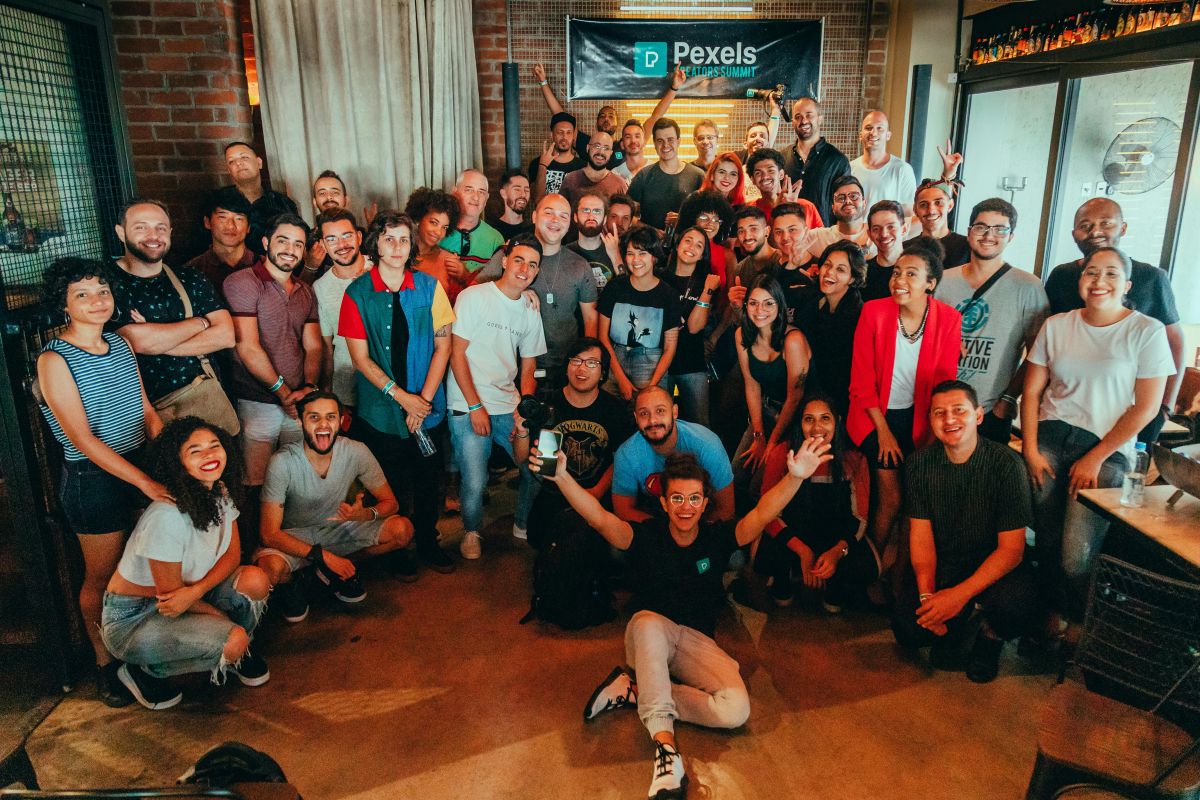

The Essential Role of Employee Experience in Building a Successful Talent Retention Strategy
Industry Insights Jan 07, 2025 • 8 min read
Words by -
Companies are constantly striving to build a robust talent retention strategy that not only attracts top talent but also keeps them. As organizations evolve, the focus has shifted to enhancing the employee experience, a key factor in reducing turnover and boosting employee satisfaction. But why is employee experience so crucial, and how can businesses harness it to create a winning retention strategy? Let's dive in.

What is the Importance of Employee Experience?
Employee experience encompasses everything an employee encounters, observes, or feels throughout their tenure at a company. It's a journey that begins from the moment they apply for a position and continues through onboarding, development, and even upon exit. The way employees perceive and engage with their organization can significantly influence their decision to stay or leave.
Why Employee Experience Matters
- Increased Job Satisfaction: Employees who have positive experiences are more likely to feel satisfied with their jobs. Satisfied employees are typically more engaged, productive, and aligned with company goals.
- Enhanced Loyalty and Commitment: When employees feel valued, they develop a stronger sense of loyalty and commitment to their organization, reducing the likelihood of turnover.
- Improved Company Reputation: Companies known for excellent employee experiences attract top talent and enjoy a positive reputation in the industry.

Creating a Winning Talent Retention Strategy
How can you craft a talent retention strategy that leverages employee experience? It requires a multifaceted approach focused on several key areas.
1. Cultivate a Positive Work Environment
A positive work environment is foundational to any effective talent retention strategy. It involves creating a culture where employees feel safe, respected, and motivated.
- Foster Inclusivity: Encourage diversity and inclusivity by ensuring that every voice is heard and valued.
- Promote Work-Life Balance: Implement flexible working hours, remote work options, and mental health resources.
- Recognize and Reward: Regularly acknowledge employee achievements and contributions.
2. Offer Opportunities for Growth and Development
Employees are more likely to stay with a company that invests in their professional development.
- Career Development Programs: Offer training sessions, workshops, and mentorship programs to help employees advance their skills.
- Clear Career Paths: Provide employees with a clear understanding of their career progression within the company.
- Encourage Continuous Learning: Promote a culture of learning through access to online courses, certifications, and other educational resources.
3. Enhance Communication and Feedback
Open and honest communication is crucial for maintaining a healthy employee experience.
- Regular Check-Ins: Schedule one-on-one meetings to discuss employee concerns, aspirations, and feedback.
- Transparent Communication: Keep employees informed about company changes, goals, and performance.
- Feedback Mechanisms: Implement systems for employees to provide feedback and suggestions anonymously.
4. Prioritize Employee Well-being
Employee well-being is an integral part of the employee experience and should be prioritized in any talent retention strategy.
- Health and Wellness Programs: Offer gym memberships, wellness workshops, and health insurance benefits.
- Mental Health Support: Provide access to counseling services and mental health days.
- Work Environment: Design workspaces that are comfortable and conducive to productivity.

Reducing Turnover: The Employee Experience Advantage
Reducing employee turnover is not just about retaining talent; it's about cultivating a workplace where employees want to stay because they feel valued and fulfilled. A positive employee experience can significantly reduce turnover rates, saving the company time and resources spent on recruitment and training.
Implementing a Feedback Loop
To effectively reduce turnover, companies must establish a feedback loop that continuously evaluates and improves the employee experience.
- Conduct Exit Interviews: Gather insights from departing employees to understand their reasons for leaving.
- Monitor Employee Satisfaction: Use surveys and performance reviews to gauge employee morale and satisfaction regularly.
- Adapt and Evolve: Be willing to make changes based on the feedback and data collected.
Measuring Success
To ensure your talent retention strategy is successful, it’s important to measure its impact.
- Key Performance Indicators (KPIs): Track metrics such as employee turnover rate, engagement scores, and productivity levels.
- Benchmarking: Compare your company’s performance against industry standards and competitors.
- Employee Testimonials: Collect and share positive employee testimonials as a testament to your company’s commitment to employee experience.
Boosting Retention Today: Taking Action
Building a successful talent retention strategy centered on employee experience requires continuous effort and commitment from leadership. The road to a satisfied and committed workforce begins with taking actionable steps today.
Steps to Get Started
- Assess Your Current Employee Experience: Conduct an audit to understand employee perceptions and identify areas for improvement.
- Develop a Strategic Plan: Create a comprehensive plan that outlines specific goals, initiatives, and timelines for enhancing employee experience.
- Involve Employees in Decision Making: Include employees in the planning process to ensure their needs and expectations are met.
- Invest in Technology: Utilize technology solutions that streamline processes and improve communication and collaboration.

Rubii: Enhance Your Business with Experts
Rubii provides exceptional candidates tailored to meet the varied needs of different industries. It connects businesses with a wide network of skilled professionals, ensuring access to the right expertise. Moreover, the service delivers customized solutions suitable for both short-term projects and long-term partnerships, offering the flexibility and support necessary to adapt to changing business demands.
Strategic Talent Sourcing for Remote Positions
- Focuses on finding candidates with the ideal skills for remote work.
- Ensures seamless integration of hires into teams for effective collaboration.
- Reduces mismatches and cultivates skilled, adaptable teams.
Cutting-Edge AI-Driven Recruitment
- Employs advanced AI technology to transform the recruitment process.
- Taps into a global talent pool.
- Automates initial recruitment phases, saving time and resources while enhancing candidate quality.
Customized Solutions for Your Business Objectives
- Offers personalized solutions tailored to address specific business challenges and goals.
- Provides expertise in areas like project management, communication, and research.
- Streamlines recruitment and improves team integration for successful results.
Thorough Performance Management
- Upholds high-performance standards through continuous monitoring and assessment.
- Implements regular evaluations and feedback systems to surpass expectations.
- Aids businesses in maintaining effective and aligned remote teams.
Streamlined Onboarding Experience
- Incorporates a structured onboarding process for the smooth integration of new remote hires.
- Assists candidates in quickly adapting to the company culture and operations.
- Emphasizes a comprehensive onboarding experience to enhance team performance and unity.
Reliable Online Support
- Offers dedicated online support for both employers and candidates.
- Quickly resolves issues and inquiries to ensure smooth operations.
- Provides essential guidance for project-related questions and communication challenges.
Expert Management of Contracts and Compliance
- Simplifies the complexities of remote work contracts and compliance matters.
- Handles legal considerations, including contracts, tax implications, and labor laws.
- Mitigates risks and provides peace of mind, allowing focus on core business functions.
In summary, businesses can greatly enhance their operations and productivity by leveraging Rubii's innovative strategies and professional support. This approach enables effective management of remote teams, which is essential in today’s competitive landscape.
Conclusion
In conclusion, developing a talent retention strategy that prioritizes employee experience is not merely a trend—it's essential in today's ever-changing business environment. Organizations that emphasize a positive workplace atmosphere, opportunities for advancement, effective communication, and employee well-being can significantly enhance retention rates and foster a vibrant workplace culture.
When integrating this focus on employee experience with innovative solutions like those offered by Rubii, businesses can further elevate their operations. By leveraging expert candidates and streamlined onboarding processes, companies not only enhance productivity but also create a supportive environment that values employee contributions. Rubii’s strategic talent sourcing and thorough performance management align seamlessly with the goal of improving employee experience, ensuring that remote teams are effectively integrated and engaged.
As organizations reflect on their talent retention strategies, they should consider how they currently prioritize employee experience and explore areas for improvement. Concrete steps taken today to enhance this experience can significantly decrease turnover and lead to a more dedicated workforce. Regular evaluation of retention strategies, alongside the insights gained from Rubii’s tailored solutions, can help businesses adapt to changing needs and cultivate a culture that promotes growth and satisfaction. By taking these intentional steps, companies can create a thriving environment that not only retains talent but also drives success in a competitive landscape.
Let Rubii guide you in creating an exceptional employee experience to strengthen your talent retention strategy. Click here to get in touch.

